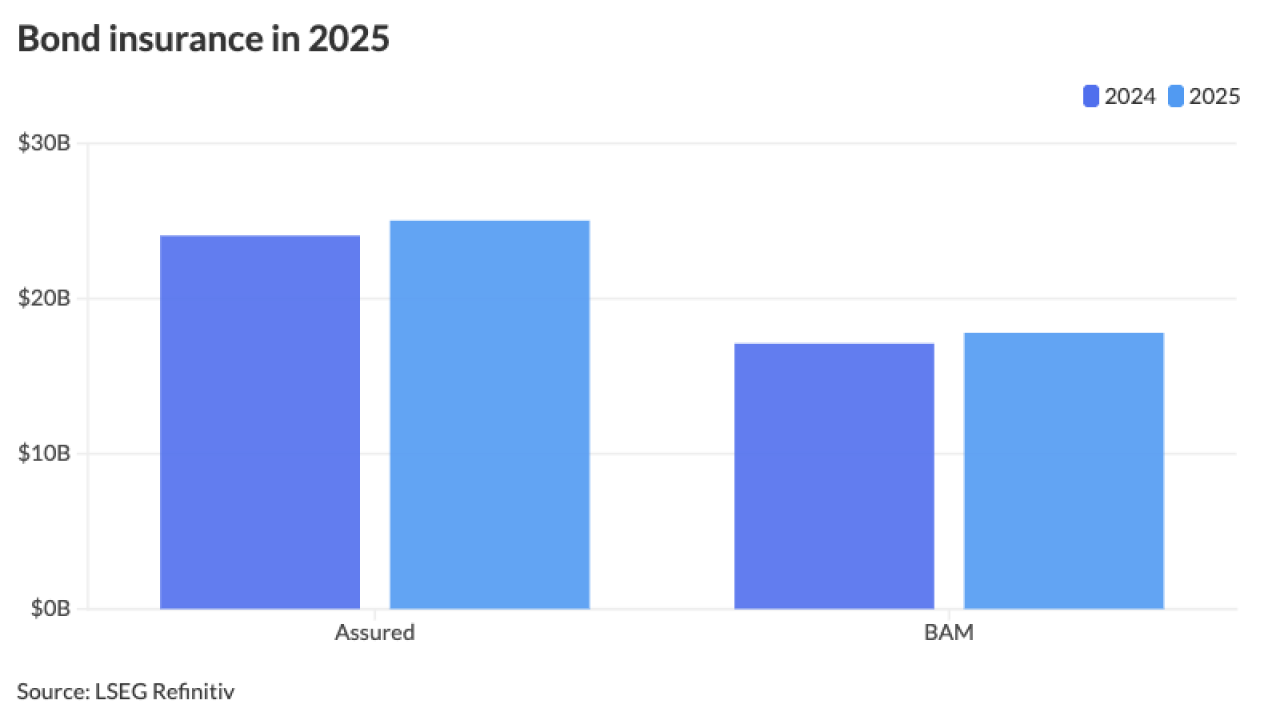The White House and the U.S. Treasury will introduce ideas to promote Puerto Rican economic growth in the next few months, Puerto Rico Senate President Eduardo Bhatia said Monday.
The ideas will probably be in the form of economic development proposals, Bhatia said after participating in a panel discussion of Puerto Rico in New York. They will probably not consist of grants.
In the discussion sponsored by the Municipal Analysts Group of New York, he said that President Obama's task force on Puerto Rico had spent time over the last few years seeking ways to improve the commonwealth's economy. The task force has been in contact with the U.S. Treasury, Bhatia said. An "important announcement" from the Treasury and the White House is expected in a few months, he said.
Bhatia's statement comes as the municipal bond market has shown increasing concern about holding Puerto Rico bonds. Except for a brief period in 2012, Puerto Rico's economy has been shrinking since 2007. The government has been running deficits for years. Over the last year, and in particular in the last six weeks, the prices of Puerto Rico bonds have slipped significantly on the secondary market.
On Thursday The Bond Buyer reported that the Obama administration has been working with Puerto Rico's government to try to maximize the impact of federal resources on the island and that some administration members had speculated about the federal government possibly supporting Puerto Rico's debt and access to the debt markets.
At Monday's discussion, Bhatia also said that the Boston Consulting Group will be on a Puerto Rico webcast for investors next week to present proposals for Puerto Rican economic development. This will be part of an investor conference call, Bhatia spokeswoman Maria de Lourdes said.
In the panel Municipal Market Advisors managing director Robert Donahue asked Bhatia whether the high electrical rates of the Puerto Rico Electric Power Authority were hurting Puerto Rico's economy.
Bhatia said these rates were a concern and that the government has embarked on a "major reform" of PREPA. The reform will respect PREPA's commitments to its bond holders and will not involve privatization, he said. The governor has a committee considering ideas for reforming PREPA. These may include some ways to introduce competitiveness to the island's electricity market and will include ways to help the economy, Bhatia said. The proposals will be announced this fall, Bhatia said.
Bhatia is a member of the Popular Democratic Party with Gov. Alejandro García Padilla. The party controls the Puerto Rico Senate and House of Representatives.
Standard & Poor's senior director David Hitchcock and AllianceBernstein senior vice president Joseph Rosenblum complained that for the last 10 years Puerto Rico leaders have promised a structurally balanced budget within two years, only to push that date back repeatedly. Donahue said Puerto Rico's prior governors had also touted their accomplishments to the municipal bond community yet the deficits have continued. He asked Bhatia, why this time is different.
Bhatia said the government had approved all the measures that the financial community had asked for.
Earlier in the discussion, Bhatia noted the unprecedented privatization of the commonwealth's main airport, which he said would eliminate the need to contribute government money to support the airport. The government also increased the tax on foreign companies in Puerto Rico to bring in more revenue and undertook a reform that reduces government payments to the primary pension plan. The government changed the taxes to bring in additional $1.5 billion this coming fiscal year. It reduced the deficit this fiscal year substantially from last year, he said.
"I do not know of a single state government that has undergone so many financial reforms in just six months," Bhatia said. Bhatia said that this past winter Bhatia had believed that in the fall he would come to New York City to enjoy champagne with financial leaders to celebrate the reforms.
Instead the market has turned on Puerto Rico. The government is frustrated by this, Bhatia said.
Puerto Rico unions and corporations have complained about many of the measures, Bhatia said. Despite this, the government wants the message to get out: "In Puerto Rico we are going to honor our debt."
Rosenblum said he thought the commonwealth had bought itself a "little bit" of time. However, the government should commission an actuarial study of the pension reform effects. It should release more recent information about the financial status of the Government Development Bank of Puerto Rico.
The government needs to show results in improved tax revenues, Rosenblum said. The economy must grow for the government to pay off its debt. Finally, the government should improve its communications with the financial community, he said.





